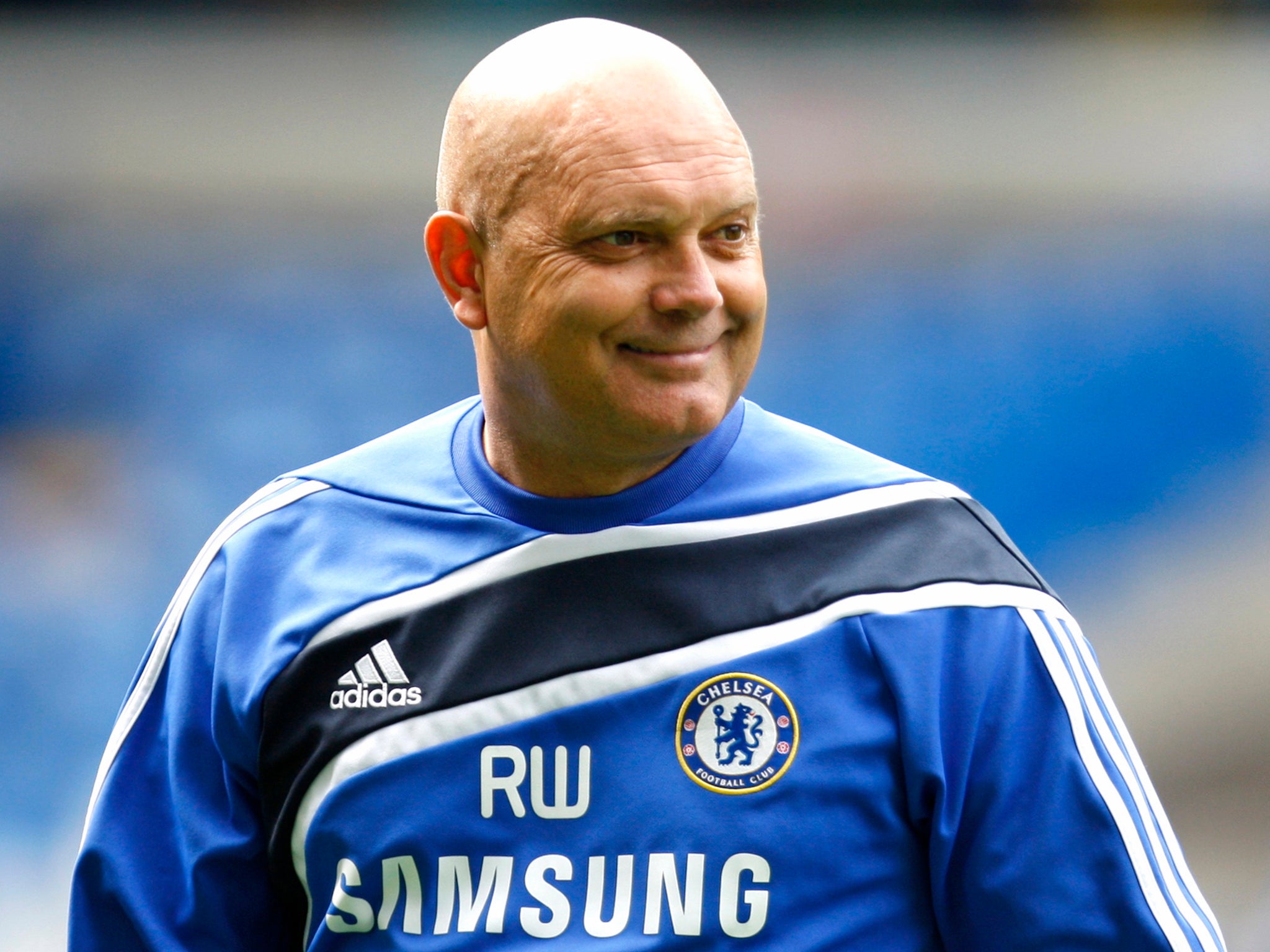Ray Wilkins: International footballer who was handed the Chelsea captaincy at 18
Blessed with an adhesive touch and a calm temperament, Ray Wilkins went on to win the double with the Blues as assistant coach and was hailed as a gentlemen of the game

Your support helps us to tell the story
From reproductive rights to climate change to Big Tech, The Independent is on the ground when the story is developing. Whether it's investigating the financials of Elon Musk's pro-Trump PAC or producing our latest documentary, 'The A Word', which shines a light on the American women fighting for reproductive rights, we know how important it is to parse out the facts from the messaging.
At such a critical moment in US history, we need reporters on the ground. Your donation allows us to keep sending journalists to speak to both sides of the story.
The Independent is trusted by Americans across the entire political spectrum. And unlike many other quality news outlets, we choose not to lock Americans out of our reporting and analysis with paywalls. We believe quality journalism should be available to everyone, paid for by those who can afford it.
Your support makes all the difference.Ray Wilkins’ curriculum vitae was testament to his lavish talents as a midfield player, featuring as he did for clubs as illustrious and wide-ranging as Chelsea, Manchester United, AC Milan, Paris Saint-Germain and Glasgow Rangers. There was also the small matter of 84 appearances for England, 10 as captain.
Wilkins, whose death at the age of 61 came a week after he suffered a cardiac arrest, was the outstanding member of an extraordinary footballing family. His father George played professionally for four clubs, while Ray’s brothers Graham, Dean and Stephen followed him into the game with varying degrees of success.
Born at Hillingdon, Middlesex, he followed Chelsea as a boy and was thrilled when the club offered him an apprenticeship. He was 17 when he made his debut against Norwich in October 1973. After Chelsea were relegated from the top flight in 1975, new manager Eddie McCreadie named Wilkins, 18, as captain.
Blessed with an adhesive touch, a cool temperament and the ability to play long, cross-field passes or penetrative through-balls, Wilkins established himself as a midfield general and leader. Those qualities amply compensated for a lack of pace and aggression. The England manager Don Revie certainly thought so, picking Wilkins, then 19, for his first cap against Italy in New York in 1976.
England turned a 2-0 half-time deficit into a 3-2 victory. Wilkins, who partnered Trevor Brooking, described the experience as “emotional” and “nerve-tingling”. He went on to play in the World Cup finals in 1982 and 1986, being sent off against Morocco in the latter tournament for uncharacteristically throwing the ball towards the Paraguayan referee. His decade-long international career ended that year, but only 13 players have won more England caps.

When he first wore the Three Lions he was midway through a four-year stint as Chelsea skipper, helping them to promotion in 1976-77. But in 1978-79, with the team again waging a doomed struggle for survival, he lost form and lost the captaincy during Danny Blanchflower’s brief managerial tenure.
The summer of 1979 saw him reunited with former Chelsea manager Dave Sexton, who paid £825,000 to take him to Manchester United. There, aged 22, he was touted as the player who would help deliver the league to Old Trafford after 11 barren years. Maybe the responsibility was too much for such a young player; in his five seasons with United they did not recapture the title. Wilkins’ contribution was steady rather than stellar, notwithstanding a stunning curled shot for a goal in the 1983 FA Cup final.
Manager Ron Atkinson called Wilkins “The Crab”, because of his supposed penchant for unambitious sideways passing, yet there was still no shortage of suitors for a player who preferred the childhood nickname “Butch”, and in 1984 he moved to Milan for a British-record £1.5m.
After three years he departed for PSG, staying only four months in France before joining the English colony at Rangers, where he performed outstandingly in the Scottish League and League Cup double-winning campaign of 1988-89. Back in west London with Queens Park Rangers, his seven years included a stint as player-manager which veered from eighth place in the Premier League one season to relegation and the sack the next.
Wilkins played on, with Wycombe Wanderers, Hibernian, Millwall and Leyton Orient, until he was 40. After retiring in 1997 and becoming Fulham manager he promptly led them to the play-offs of the Second Division but was sacked by Mohamed al-Fayed and returned to Chelsea as No 2 to Gianluca Vialli. He also served as assistant manager with Watford, Millwall and England Under-21s before again rejoining Chelsea in the same capacity under Luiz Felipe Scolari.
When the Brazilian was fired in 2009, Wilkins stepped up as caretaker manager. Carlo Ancelotti, who managed Chelsea for two years, said in his autobiography that Wilkins was “noble in spirit, a real blue-blood” for whom “Chelsea flowed in his veins”.
He added: “Without him we wouldn’t have won a thing.” The sudden termination of Wilkins’ contract in 2010 was a bitter blow for a genial, softly spoken man. He went on to become assistant head coach with Fulham, head coach of Jordan’s national team and No 2 to Tim Sherwood at Aston Villa before they were both sacked in 2015.
Wilkins, who received an MBE in 1993 and also worked as a pundit with Sky Sports and Talksport, was hailed by England manager Gareth Southgate as “a great ambassador for the game, a proud Englishman and an absolute gentleman”. He is survived by his wife Jackie and their son and daughter.
Raymond Colin Wilkins, footballer, born 14 September 1956, died 4 April 2018
Join our commenting forum
Join thought-provoking conversations, follow other Independent readers and see their replies
Comments